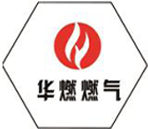
Sep . 21, 2024 17:01
Back to list
natural gas filtration
Natural Gas Filtration Ensuring Pure Energy Supply
Natural gas is a vital energy source that powers homes, industries, and vehicles across the globe. With its increasing demand, the importance of ensuring the purity and quality of natural gas has never been more crucial. One critical step in the process of natural gas processing and distribution is effective filtration, which plays a significant role in protecting both equipment and end-users from contaminants that can compromise efficiency and safety.
Natural gas extraction often yields various impurities, including water vapor, sulfur compounds, carbon dioxide, and particulate matter. These contaminants can originate from the gas formation itself or can be introduced during extraction and transportation processes. Therefore, implementing robust filtration systems is essential to achieving the desired gas quality and meeting regulatory standards.
Filtration in natural gas systems typically involves several stages. Initially, coarse filters are used to remove larger particulate matter such as dust, sand, and other debris. These contaminants are usually captured using high-efficiency particulate air (HEPA) filters or similar technologies designed to withstand high operational pressures found in gas pipelines. The use of these filters is critical for protecting downstream equipment, such as compressors and turbines, from wear and tear caused by particulate damage.
natural gas filtration

Following the coarse filtration stage, the gas may pass through finer filtration systems that target smaller particles and liquid droplets. These can include mesh filters, cartridge filters, and coalescing filters, which are effective at separating water and oil from the gas stream. The presence of water and hydrocarbons can lead to corrosion and the formation of hydrates, which can block pipelines or disrupt flow. Therefore, effective dewatering and oil removal through proper filtration are vital to ensuring smooth and uninterrupted gas supply.
Another crucial aspect of natural gas filtration is the removal of chemical contaminants, such as hydrogen sulfide (H2S) and carbon dioxide (CO2)
. These compounds can be detrimental when combusted, producing harmful emissions. Filtration technologies, including activated carbon and chemical scrubbers, are employed to absorb or chemically react with these contaminants, ensuring that the gas meets the required specifications for safe usage.Furthermore, the evolution of nanotechnology and advanced materials has led to the development of more efficient filtration media. These new materials can achieve higher filtration efficiencies while reducing pressure drops, which enhances the overall efficiency of the gas distribution network. Innovations in monitoring technologies also allow operators to track filtration performance in real-time, ensuring that any issues are promptly addressed.
In conclusion, natural gas filtration is a critical process that ensures the purity and safety of this essential energy resource. With advances in filtration technology, the natural gas industry can better protect equipment, comply with environmental standards, and provide high-quality gas to consumers. As the world continues to shift toward cleaner energy sources, investing in effective filtration systems will play a key role in achieving sustainable energy solutions with natural gas.
Next:
Latest news
-
Safety Valve Spring-Loaded Design Overpressure ProtectionNewsJul.25,2025
-
Precision Voltage Regulator AC5 Accuracy Grade PerformanceNewsJul.25,2025
-
Natural Gas Pressure Regulating Skid Industrial Pipeline ApplicationsNewsJul.25,2025
-
Natural Gas Filter Stainless Steel Mesh Element DesignNewsJul.25,2025
-
Gas Pressure Regulator Valve Direct-Acting Spring-Loaded DesignNewsJul.25,2025
-
Decompression Equipment Multi-Stage Heat Exchange System DesignNewsJul.25,2025

